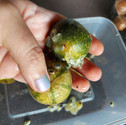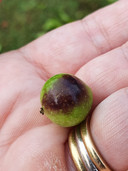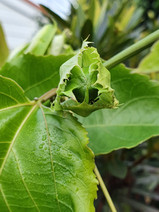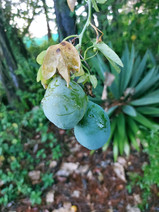Propagating Passiflora Seeds
- Jazz Carter
- Nov 3, 2021
- 3 min read
Updated: Jul 6, 2022
The late Don Ellison was an expert in the field of cleaning and growing many different Passiflora varieties successfully and has written extensively on the subject, after years of trials with more than 50 different species he was able to identify the various ways to encourage germination.
The following information has been taken from some of his literature, for this article I have focused on the pre-treatments and germination techniques as we already supply cleaned seeds stored at optimum temperatures to maintain viability.
Various methods used for pre-treatment of Passiflora seeds
There are many methods used to either break the hard outer shell or to induce the seed out of dormancy, the ones listed below are some that have been proven to be successful.
I think that it's very important to test different ways of propagating seeds and find a method that works best for you, what works for one person is not often the best choice for everyone.
Place seeds in a container and fill with warm water and allow to soak for 48 hours prior to sowing
Use water with 10% Hydrochloric Acid and allow to soak overnight
Soak seed in mixture of half water and half Apple Cider for 24 hours before sowing
Soak the seed overnight in water which has one dessert spoon of bleach per cup of water
Soak seed in a mixture of half a teaspoon of dishwashing detergent to 450ml water overnight
Use an electric heated germination mat set at 29.5°C for 12 hours out of each 24 hours
Use the Smoke method of treating the seed - place seed in some open weave material and hang over a smoky fire for at least one hour but away from the heat - this method is ideal for the 3 Australian species.
Soak in a mix of half lemon juice and half water for 24 hours
Place seed in a Zip Lock plastic bag with a Banana skin for 2 - 3 days - this is used to break dormancy
Soak seed in warm weak tea for 1 day then change the tea for a new batch and soak for another day, then soak in very strong warm black tea for 4 hours before sowing
Scarify the seed in a tumbler used for polishing stones with added coarse sand, this may take 4 - 5 hours
For very rare &/or expensive seed, use a 2.5cm diameter dowel or part of a broom handle about 30cm long. Put some blu tac/plasticine/modelling clay on one end then push a small amount of seed into it to hold them in place, then using a Dremel tool with a grinder at high speed, remove some of the hard shell until you get a glimpse of the white part of the seed - do not damage the white part of the seed!
Passiflora Propagation Media
Once the desired pre-treatment has been completed, it is time to sow the seeds.
Use a mixture of sieved compost, coarse washed river sand and perlite in equal quantities with added fertiliser is a good mix to use for germination.
Use a pot/container that is at least 7.5cm deep, barely over the seed with the mix and use a light cover of vermiculite on top.
The ideal germination temperatures for most Passiflora species is 29.5°C and best kept maintained at a constant without much fluctuation in temperatures.
Keep the seeds moist but not wet and pot up when about 7.5cm tall when the seeds have a good root system.
Slowly sun harden them and then plant into the ground with some added fertiliser and mulch.
#passiflorapropagation #passifloraseeds #howtogrowpassiflora #howtogrowpassionfruit #seedsforsale #passifloraseedsforsale #seedsupplier #seeds #growingpassionfruit #passionfruit #weirdandwonderfulpassionfruitflowers #passionfruitflowers #growyourownpassionfruit #propagatingpassiflora #tipsongrowingpassiflora #seedsforsale









































Comments